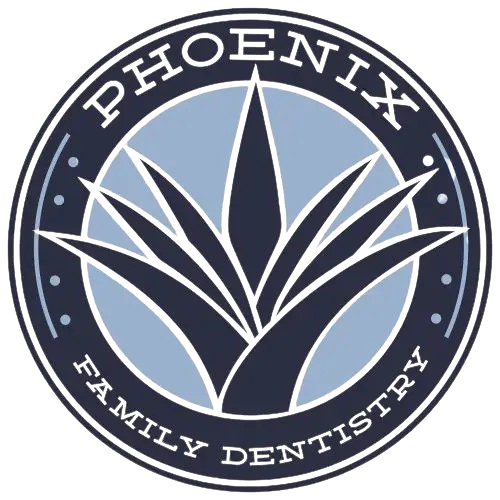Emergency Dentistry and the Coronavirus (COVID-19) Disease: When Is Tooth Pain Considered a Dental Emergency?
Posted by Phoenix Family Dentistry
Dental Procedure
on Jul 22 2020, 08:08 PM
Like other health care issues, emergency dentistry and the Coronavirus COVID-19 disease are generating a lot of discussions. The virus is pervading life everywhere, rearranging routines and schedules. The pandemic has not halted oral health concerns. Still, dental offices are not currently doing routine exams and non-emergency appointments. If you are confused about whether tooth pain falls into the emergency category, learn more about what your dentist in Phoenix, AZ can do for this issue.
Understanding COVID-19
The coronavirus is a respiratory disease caused by a new virus. It started in late 2019 in Wuhan, China, and has since spread worldwide. It has infected more than 1.5 million people, taking the lives of more than 150,000. It passes from one person to another through sneezing and coughing droplets. People can also get it by touching infected contact points and then touching their face. Symptoms include fever, dry cough and shortness of breath.
The causes of tooth pain
Most people have suffered a toothache at some point in life. In many cases, the pain is fleeting and moderate. These situations should cause little concern. If the pain becomes more intense and long-lasting, the person should seek dental care.
A toothache usually indicates that the person has tooth decay. This occurs when the patient develops poor oral health habits such as not brushing or flossing enough. Eating excessive amounts of sugar can also cause this discomfort. Other sources of tooth pain include an injury to a tooth from a blow to the face.
Emergency dentistry and the Coronavirus COVID-19 disease: when to get care for a toothache
Due to current restrictions on receiving dental care, patients should be cautious about making appointments. Not all toothaches are emergencies. However, there are some clues to help people know whether to go to the dentist in 85053 during the COVID-19 pandemic.
Here are some guidelines to help assess whether tooth pain requires immediate attention:
Severe or Persistent Pain: If you are experiencing intense, unrelenting tooth pain that does not respond to over-the-counter pain relievers, it could indicate a serious underlying issue such as an infection or abscess. Such cases often require prompt evaluation and treatment by a dentist.
Swelling: Swelling around the tooth or in the gums can be a sign of infection. If the swelling is severe, accompanied by fever, or affects your ability to breathe or swallow, it's crucial to seek immediate dental care.
Trauma or Injury: If you've sustained trauma to your mouth or teeth, such as a broken or knocked-out tooth, you should see a dentist as soon as possible. Immediate treatment can help save the tooth and prevent further complications.
Bleeding: Persistent bleeding from the gums or around a tooth, especially if it is significant or difficult to control, may indicate a dental emergency requiring immediate attention.
Difficulty Eating or Drinking: If tooth pain makes it challenging to chew, swallow, or drink, it can lead to dehydration and nutritional deficiencies. Seeking dental care promptly can address the underlying issue and restore your ability to eat and drink comfortably.
Signs of Infection: Symptoms such as fever, foul taste in the mouth, or pus discharge from the gums are indications of a possible infection, which requires urgent dental treatment to prevent it from spreading.
Loose or Lost Fillings/Crowns: While not always an emergency, a lost or loose filling or crown can expose the underlying tooth to decay and infection, leading to pain and further damage if not addressed promptly.
Unexplained Pain: Sometimes, tooth pain may not have an obvious cause but is still severe or persistent. In such cases, it's essential to have a dentist evaluate the problem to identify any underlying issues and provide appropriate treatment.
During the COVID-19 pandemic, it's important to contact your dentist first rather than directly visiting the office to discuss your symptoms and receive guidance on whether your situation constitutes a dental emergency. Many dental practices have implemented telemedicine consultations to triage patients and determine the urgency of their needs. Additionally, dental offices have implemented enhanced safety protocols to minimize the risk of COVID-19 transmission during in-person visits. Call us to learn more.
When to wait
People should understand emergency dentistry and the Coronavirus COVID-19 disease issues and why staying home is important. Patients should avoid unnecessary travel, even for some types of dental care. If a person’s toothache only shows up infrequently, it is probably not an emergency. Also, be aware of the severity of the discomfort. If the pain is slowly going away, a visit to the dentist’s office can probably wait a few more weeks or longer.
Your dentist knows
If you are still confused about what you should do for your toothache, call your dentist. Emergency dentistry and the Coronavirus COVID-19 disease will continue to be at the forefront of your dentist’s mind. If you have urgent needs, do not procrastinate getting care. At the same time, if your toothache is moderate and does not affect your ability to eat, it is not likely an emergency. Take care of your oral health when emergency needs arise. Also, be mindful of the risks during this COVID-19 pandemic.
Request an appointment here: https://familydentistphoenix.com or call Phoenix Family Dentistry at (602) 547-9007 for an appointment in our Phoenix office.
Share On

How Long Is Recovery From a Root Canal?
Like other health care issues, emergency dentistry and the Coronavirus COVID-19 disease are generating a lot of discussions. …

Can an Invisalign Dentist Correct Crooked Teeth?
Like other health care issues, emergency dentistry and the Coronavirus COVID-19 disease are generating a lot of discussions. …

Caring for Veneers After a Cosmetic Dentist Treatment
Like other health care issues, emergency dentistry and the Coronavirus COVID-19 disease are generating a lot of discussions. …





